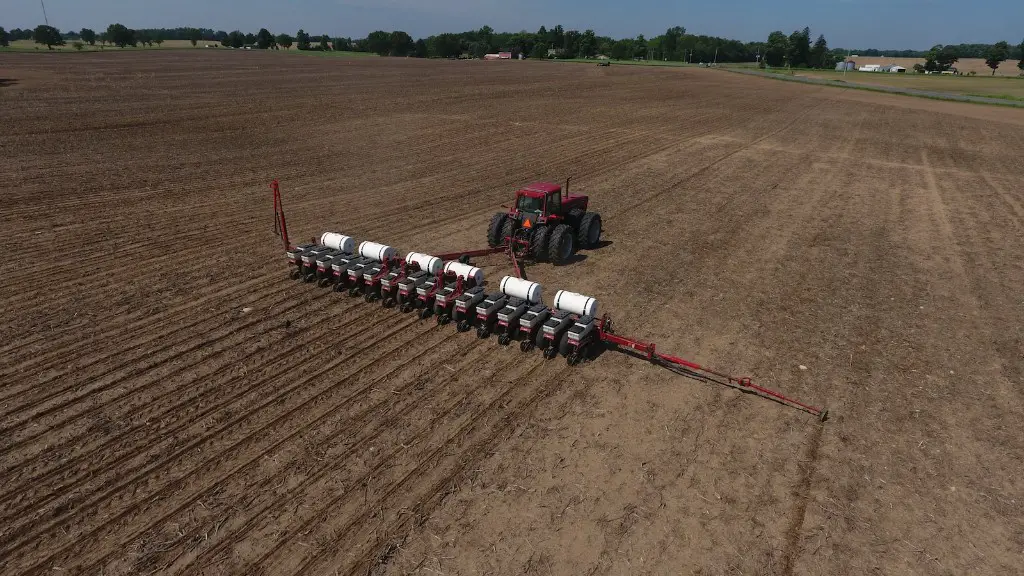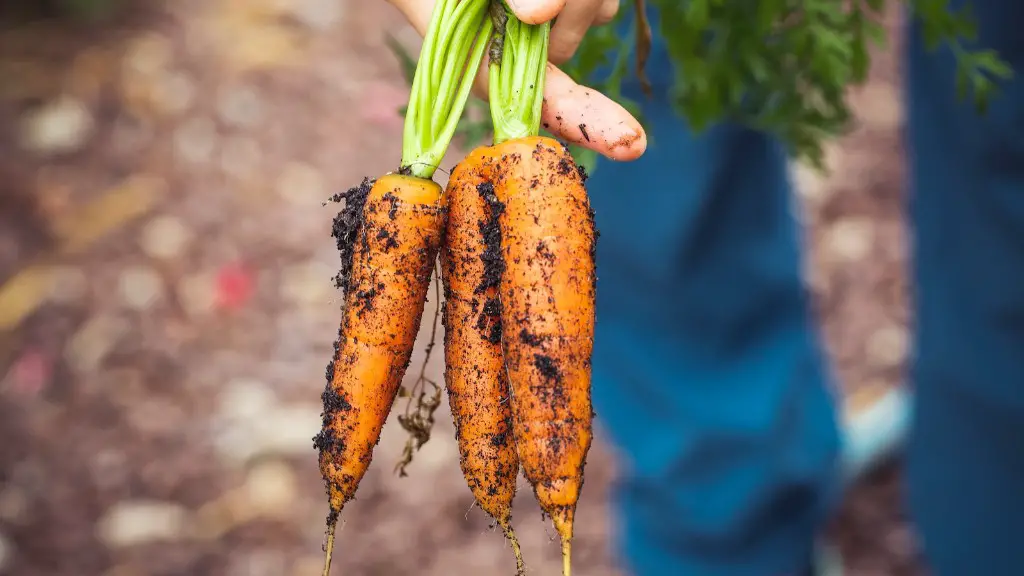Ancient Egyptian agriculture was vitally important to the daily lives of people living in the region. It provided a steady food source and allowed for other technologies to be produced and maintained. Because of the lack of naturally occurring rainfall in the desert, Ancient Egyptians had to devise new ways to irrigate their crops. This took the form of a complex irrigation system that made use of the natural rivers and canals of the region to water crops.
Ancient Egyptians also invented crop rotation and fertilizers to ensure their land was efficiently used and remained in good condition. Ancient Egyptians developed and perfected techniques such as terracing, where farmers would systematically cut the tops of hills to create level fields. These terraced fields and irrigation systems allowed for the cultivation of a wide range of crops, including wheat, barley and flax. The cultivation of these crops, along with animal husbandry, provided Egyptians with a food source that sustained their population for centuries.
The importance of Ancient Egyptian agriculture is most visible by the legacy that it left behind. In particular, the Egyptian hieroglyphic writing system helped to disseminate the knowledge of Ancient Egyptian farming practices. By the time of the New Kingdom, Ancient Egyptian agriculture reached its peak and it was a major contributor to their economy.
Moreover, the food surplus produced through Ancient Egyptian agriculture allowed for significant technological innovation, such as the production of bricks, pottery and monuments. This technological advancement in turn led to the development of a prosperous economy, which allowed Ancient Egyptians to expand their population and territory. Finally, Ancient Egyptian agriculture was essential in encouraging long-term stability in the region. The food surplus allowed for a more reliable and consistent food supply, leading to population growth which in turn led to cultural and social advancement.
Advanced Technology
In addition to the innovative irrigation and crop rotation methods, the Ancient Egyptians also employed advanced technology to ensure efficient resource management. This included the use of copper chisels and other tools, as well as complex plowing techniques. They also employed animal labor, such as donkeys, to assist in the harvest. Ancient Egyptians even made use of seasonings and preservatives to help preserve their food for longer. These techniques allowed them to be able to produce food at an efficient rate.
Trade and Connections
The role of Ancient Egyptian agriculture was also important in its ability to form trade connections. Ancient Egyptians were able to use their surplus food to barter or exchange goods with other cultures. This allowed Ancient Egyptians to form successful and long-lasting relationships, which further developed their culture and influence. These trade connections also allowed for the spread of Ancient Egyptian knowledge to the surrounding regions.
Political Stability
Finally, Ancient Egyptian agriculture established political stability by providing a reliable food source to the Egyptian people. This allowed for a more consistent distribution of power and allowed Pharaohs to maintain control over their people. As a result, Ancient Egyptian agriculture had a direct impact on the trajectory of Egyptian politics, allowing for longer reigns and more successful dynasties.
Social Hierarchy
Agriculture also allowed for the creation of a strong social hierarchy in Ancient Egypt. Those with access to sustainable agriculture had greater economic stability, leading to an increased level of social status. This increased social status, in turn, allowed for more powerful positions such as royalty and priesthood to be established. In this way, Ancient Egyptian agriculture was essential for the development of their society.
Social Structure
In addition to the social hierarchy that was formed, Ancient Egyptian agriculture allowed for the development of a more organized and sophisticated social structure. Those with access to the necessary resources were able to develop the skills needed for specializations, such as pottery, animal husbandry and construction. This allowed for a more diverse range of social roles to be assigned, further strengthening the Ancient Egyptian social fabric.
Economic Benefits
The economic benefits of Ancient Egyptian agriculture were numerous, allowing Pharaohs to collect tax and redistribute wealth. This redistribution of wealth allowed for greater government control and eventual progress. Additionally, by providing a food source, Ancient Egyptian agriculture allowed the population to increase and allowed for the development of a more educated and skilled labor force. These trained workers were then able to contribute to the advancement of Ancient Egyptian technology, which enabled the culture to further progress.


